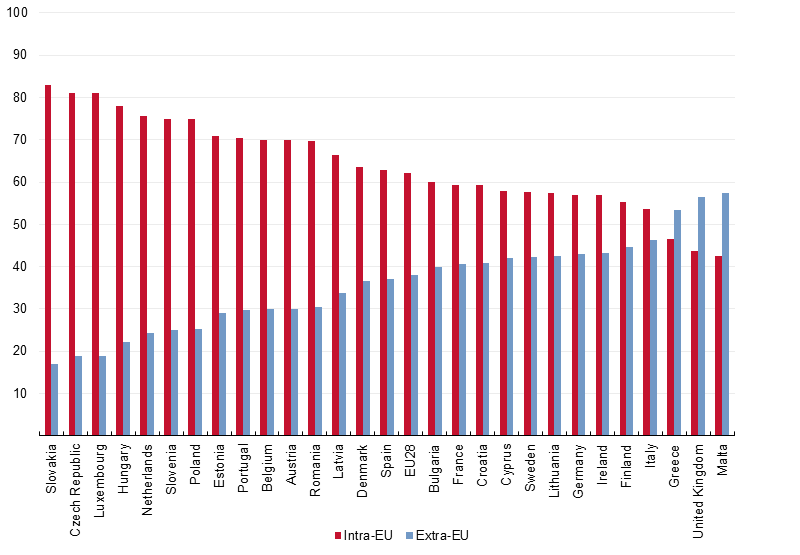Hong Wu wrote:All the people calling for revenge or consequences against the UK might not understand that this will make it easy to portray the fallout as the work of hostile foreigners, which will in turn only make people more interested in rejecting the EU. This was one of the mistakes avoided at the end of WWII but clearly the west has regressed since then.
In today's news, a Swedish commissioner was acting as though she thinks the EU can and will disempower the UK and intentionally disrupt UK-EU free trade.
I question whether or not the EU has any say at all on matter of free trade within the EEA? The UK has previously moved between trade blocs without difficulty. The UK left EFTA and Commonwealth trade blocs when joining the EU, and those affected blocs did not demand that the UK leave them before the UK begins negotiating with the EU.
The current stance of the EU is the UK might not leave the EU until 2018 and cannot begin negotiating EU trade deals until after it leaves, implying that UK-EU trade could be disrupted until circa 2025. This is very aggressive and unprecedented posturing by the EU, and I question whether their position is within international rule of law?
The UK obviously trades more with some EU members more that others, such that removing UK-EU free trade would impact some EU partners more than other EU partners. WTO requires "equal treatment for all trading partners", and is equal impact effectively the same as equal treatment? Ending UK-EU free trade would have unequal consequences within the EU. One of the biggest losers would be Germany because the UK became Germany's biggest trade partner in 2012.
WTO also states "non-members should not find trade with the group any more restrictive than before the group was set up". The Hanseatic League protected some trade between UK and Germany in 1358, the UK founded EFTA in 1960, and it is the EFTA that manages the 31 state EEA bloc - not the EU, and the EU came to exist in 1993 (EEA existed from 1994). As EFTA manages EEA, and EFTA is independent of the EU, why can the UK not simply continue its EEA treaty ignore the EU? Why is any EU-UK negotiation required to retain free trade with EU member states given that they are each a separate and sovereign signatory of the EEA? Why are suggestions that UK-EU negotiations are needed to retain EEA free trade not in itself a breach of WTO international law?
Link:
The EEA AgreementTomorrow
noun
The location in which 99% of all human productivity, motivation, and achievement is stored
e.g. "European Union squandered opportunities like no tomorrow"



















 - By wat0n
- By wat0n - By Rancid
- By Rancid